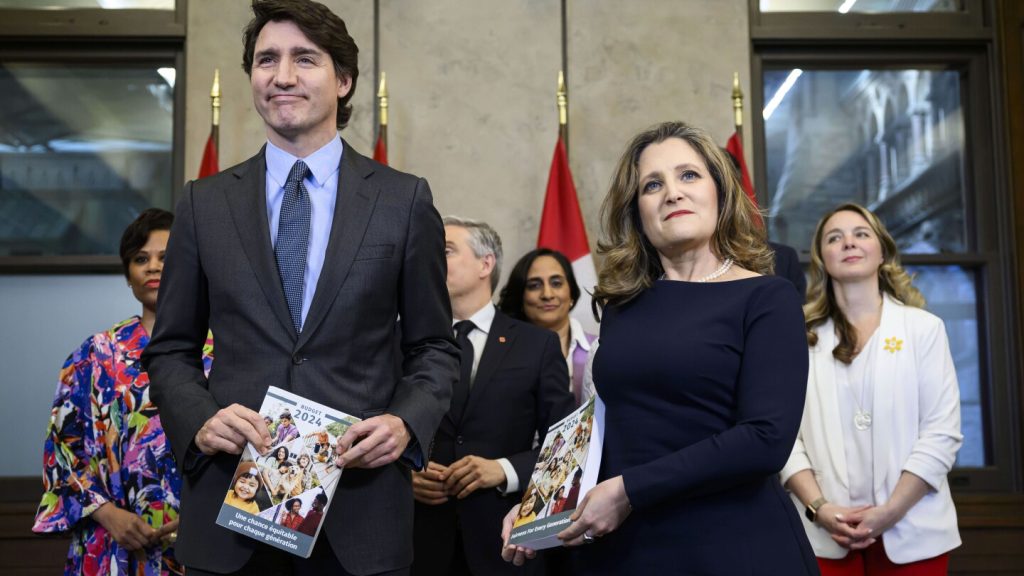The Canadian government, led by Prime Minister Justin Trudeau, announced that it would be implementing higher taxes on the wealthiest Canadians as part of the federal budget. This would involve increasing the capital gains inclusion rate, affecting only 0.1% of Canadians with profits above $250,000, resulting in nearly $20 billion in revenue over five years. Finance Minister Chrystia Freeland defended the decision, urging the wealthy to consider the kind of Canada they want to live in before protesting the tax increase. The budget also includes $53 billion in new spending that prioritizes economic justice for younger generations.
Freeland emphasized that the budget was not solely a political move, although she acknowledged the challenges faced by the younger generation in establishing themselves in Canada. The federal deficit was capped at $40 billion, reflecting the government’s commitment to fiscal responsibility. However, Trudeau’s Liberal government is facing criticism and trailing in the polls due to concerns over the cost of living in Canada. Political science professor Nelson Wiseman suggested that the budget might not be enough to improve the Liberal Party’s prospects in the upcoming elections, and speculated that a change in leadership might be necessary for them to have a chance at winning.
Despite the government’s efforts to address economic inequalities and generate revenue through taxes on the wealthy, there are doubts about the effectiveness of the budget in boosting Liberal Party popularity. Wiseman suggested that Trudeau stepping aside and a new leader taking over might be the only hope for the party to avoid defeat. The budget, aimed at addressing economic disparities and supporting younger generations, is seen as an attempt by the government to appeal to a broader demographic and demonstrate its commitment to social and economic justice.
The tax increase on the wealthiest Canadians, particularly through the capital gains inclusion rate, is expected to have a significant impact on government revenue over the next five years. While the government argues that the tax hike is necessary for building a more equitable society, critics continue to question its effectiveness in addressing underlying economic issues. The political implications of the budget, including its potential impact on the upcoming elections and the future of the Liberal Party, remain uncertain as Canadians await further developments and announcements from the government.
Overall, the federal budget presented by Finance Minister Freeland reflects the government’s priorities in addressing economic challenges, supporting younger generations, and generating revenue through taxes on the wealthiest Canadians. As the country grapples with concerns over the cost of living and economic disparities, the budget aims to strike a balance between fiscal responsibility and social welfare. The political landscape, however, remains uncertain as the Liberal Party faces criticism and challenges in gaining public support ahead of the upcoming elections.


